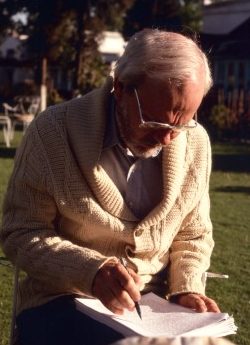
I spent altogether nine and a half years in Afghanistan in the 1950s and 1960s. I taught sociocultural anthropology at Washington University in St Louis from 1969 to 2013 and served as Department Chair for seven years. Trained to think of my discipline as the science of history, my scholarly interests have ranged widely. I have written on the cultural continuities of the Turco-Persian ecumene (a pattern of social conventions that at one time stretched from the Mediterranean Sea to India), on factional struggles among peasants in the Hazarajat, on inter-sectarian relations between the Ismailis and Ithna-ashariyyah Shiites of Afghanistan, on the Mujahedin coalitions that opposed the Soviets in the 1980s, on the Taliban and similar movements in Central Eurasia, and on the spatial dimensions of international power in Central Eurasia.
I have been a practicing Christian for many years, have found in the Bible many texts that have helped me work through some of the deep questions of life and experience. Its proclamations, examples, moral appeals, claims, and promises have influenced my approach to the deep questions that on a subliminal level vex all of us. By discussing some of the passages of the Bible that have helped me think through such fundamental human issues, in Walking Blind I invited others with less familiarity with the Bible to look at it as a creative source of reflection and insight on the enduring questions of life.
Research Interests as of 2013The research and writing projects that have occupied me have derived from my long interest in social affairs in Afghanistan. As a cultural anthropologist I have reported on situations and social practices among the people I knew in Afghanistan. Much of my writing has come from my field researches there in the 1960s. Much of my material from that period is still unpublished but I hope to continue bringing out significant details from those field notes. (Examples: “Recollections of a Wedding in the 1930s” and “Trouble in Birgilich”.)
Another interest of mine has been to explain the wider significance of the Afghanistan wars. I believe the geopolitical implications of the Central Asian region are huge, and I have tried to explain them in various writings: “Continuing Issues in the New Central Asia” (2008), and the “Introduction” to Ethnicity, Authority, and Power in Central Asia: New Games Great and Small (2010). I have also tried in various oral presentation to explain the geostrategic importance of Afghanistan and Pakistan for the construction of oil and gas pipelines that will connect various countries in Central Asia.
A third set of projects has been the attempt to describe patterns of alliance that have taken form among the fighting groups in Central Asia during the last several decades: “Fraternity, Power, and Time in Central Asia” in The Taliban and the Crisis of Afghanistan (edited by Robert Crews and Amin Tarzi (Harvard University Press); “New Trends among the Hazaras: From ‘The Amity of Wolves’ to ‘The Practice of Brotherhood.’”
Another set of projects has to do with describing the moral imagination in social practice. The sudden fame of Osama Bin Laden in the Middle East, for example, and the sudden world-wide fame of Susan Boyle, whose performance on “Britain’s God Talent” captured the imagination of folks all over the world.
These research interests are not disparate, for in the grand tradition of my discipline I take anthropology to be the science of history. As such it encompasses the need to understand the human condition as we find it in all social contexts, from the every day encounters of ordinary people to the political activities of leaders and their followers in world affairs.
For me, this is the funnest field there is.